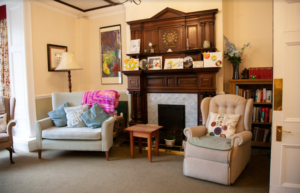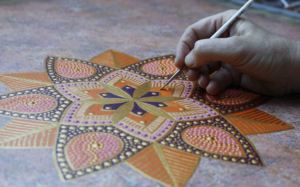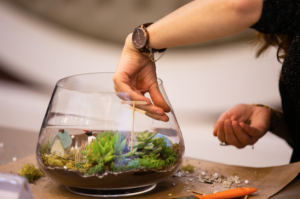At our professional elderly care home in Surrey, we’re delighted to share some news with you!
This month, we’re celebrating our shortlisting in several categories in the regional Great British Care Awards, as well as at a national level in the Caring UK awards — two of the care sector’s leading forms of recognition.
Recognising Professional Elderly Care: The Awards
We’ve been shortlisted in four categories at the Great British Care Awards, including The Care Home Registered Manager Award for Maggie, who oversees Huntington House, as well as the The Dignity in Care Award, The Care Employer Award and The Care Team Award.
We’re also shortlisted at a national level in the Caring UK Awards, with our team at Langham Court gaining recognition for their hard work in dementia care.
The format of the Great British Care Awards sees them celebrate the achievements of regional professional elderly care services, before the regional winners then compete at a national level – so this is an incredibly exciting opportunity for all at the estate!

Professional Elderly Care: Reflecting on the Past Year
The past couple of years has been incredibly difficult for everyone in the healthcare sector – so to be recognised at this point in time truly is an achievement.
Charlie, our director, said: “Being shortlisted in a leading industry award is always something to celebrate, but to be shortlisted in five separate categories really is fantastic and the team here are delighted. Everyone has worked so hard in the last 18 months to overcome the challenges of the pandemic, so to receive recognition for the services we’ve been providing during that time is a really wonderful feeling and we’re enormously excited at the prospect of winning.”
The Great British Care Awards will take place on the 6th November at the Hilton Hotel in Brighton — with the Caring UK Awards following later in the year on the 2nd December at an awards ceremony, hosted by Emmerdale actor Dean Andrews, at The Athena in Leicester.
Both events intend to celebrate those who have gone above and beyond in the care industry and will offer the opportunity for care providers across the UK to reflect on their resilience throughout the pandemic.
Charlie added: “The interviews that have occurred as part of the award shortlistings offered a moment of reflection for all the positives that we, as a team, have achieved during 18 months of dealing with almost relentless challenges. It’s so important to take stock at times like this, and whether or not we win, I am immensely grateful to have had everyone at the estate by my side through the ups and downs of the pandemic.

“Our team have done a magnificent job under the most trying of circumstances to deliver consistently excellent care throughout the pandemic and it’s all thanks to their hard work and dedication that we’re in the running. So I’d like to say a huge thank you to them for their efforts, and in particular, Maggie and Anita who have done a tremendous job in managing their respective teams. Fingers crossed for the win!”
At the estate, we’d like to thank everyone who has supported us so far throughout our journey. Without our wonderful residents, family members and dedicated staff, we certainly wouldn’t have made it this far.
If you’d like to find out more about our professional elderly care home, please do browse our website.
Alternatively, to book a tour today, please contact a member of our team.








